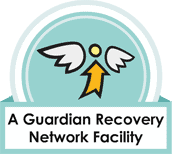What are Benzodiazepines?
Benzodiazepines are a class of man-made prescription medications that directly affect the central nervous system and lead to feelings of sedation and stress relief. Benzodiazepines are most commonly prescribed to treat anxiety-related disorders and seizures, though they have several other medically acknowledged uses – including the treatment of severe alcohol withdrawal symptoms and certain sleep-related issues. Some examples of brand name benzodiazepines include Xanax, Valium, Klonopin, Ativan, Restoril and Rohypnol. These medications vary in strength. For example, Ativan (lorazepam) is one of the most potent benzodiazepines on the market, and is typically prescribed for the short-term treatment of severe anxiety disorders and persistent panic attacks. The potency of Ativan makes it extremely habit-forming, and physical dependence can occur within weeks of use – even when the medication is being taken exactly as prescribed as a medical professional. It is important to note that all benzodiazepines have a high potential for abuse. If you do develop a physical and psychological dependence it is imperative that you seek professional addiction treatment as quickly as possible. There is a long and serious list of risks involved with benzodiazepine abuse.
Risks of Benzodiazepine Abuse
There are several mild side effects that could occur with repeated use, even when the benzodiazepine in question is being taken exactly as prescribed.
Benzodiazepine abuse side effects include:
- Dizziness and lightheadedness
- Fatigue and drowsiness
- Confusion
- Sedation that could result in a lack of coordination
- Memory-related issues
- Nausea, vomiting, diarrhea or constipation
- Weight gain
- Reduced libido
There are also more serious side effects that could occur, including:
- Respiratory depression
- Dangerously slowed heart rate
- Decreased blood pressure
- Fainting
- Jaundice (yellowing of the skin)
- Seizures
- Psychological symptoms – like severe depression, which could ultimately lead to suicidal ideation and suicide attempts
- The development of a severe substance abuse disorder
- Life-threatening withdrawal symptoms when use is stopped suddenly
We Are Here For You
Let Us Help You Heal
Our Drug & Alcohol detoxification experience is second to none.
Learn how we can help by speaking with one of our Treatment Advisors today.
An article published by American Family Physician titled, “Risks Associated with Long-Term Benzodiazepine Use” explains the many risks that individuals who abuse these medications undeniably face at some point down the road. In addition to substance abuse and dependence, the specific study discussed in this article found that some other major risk factors associated with prolonged use include:
- Motor vehicle accident. – According to the study, “The risk of driving while on benzodiazepines is about the same as the risk of driving with a blood alcohol level between 0.050% and 0.079% (an alcohol level greater than 0.08% is illegal in all states).” Benzodiazepine use also leads to impaired judgment and an increase in risk-taking behaviors – like getting behind the wheel of a car while intoxicated.
- Hip fractures – Interestingly enough, benzodiazepine abuse is fairly common among the elderly. It was discovered that regular benzodiazepine use increased the risk of hip fractures among members of this specific demographic by at least 50 percent.
- Lasting cognitive impairment – It is common knowledge that benzodiazepine medications reduce cognitive functioning short-term. Those who take these medications regularly experienced compromised motor coordination, decreased reaction times, amnesia and ataxia. However, it was recently discovered that those who abuse a benzodiazepine for any extended period of time might experience substantial and permanent symptoms of cognitive decline. It was found that individuals who abused Valium did not experience a return to normal cognitive functioning even three months after use had been stopped entirely.
Our Drug & Alcohol Detox Services Include
Benzodiazepine Abuse – Signs & Symptoms
According to a study titled, “Benzodiazepines: Types, Side Effects and Addiction,” individuals who have a personal or family history of substance abuse are significantly more inclined to develop a benzodiazepine addiction – for this reason, medical professionals thoroughly screen their clients to ensure that these medications are relatively safe to use. If it is determined that an individual has suffered at the hands of a substance abuse disorder in the past, alternative medications are generally utilized.
Still, even when taken exactly as prescribed, benzodiazepines can be habit-forming. Because benzodiazepines actually change the chemistry of the brain and severely impact cognitive functioning, attempting to quit without professional intervention is almost always unsuccessful.

Ready To Begin Your Drug & Alcohol Detox?
We Offer A Safe & Effective Program
Don’t let Drug & Alcohol addiction control your life.
Call us today and let’s get you started on the path to a better you.
Common symptoms associated with benzodiazepine abuse include:
- Taking higher doses of benzodiazepines than intended for longer than intended
- Attempting to quit or cut back but being unable to do so
- Continuing to use benzodiazepines despite serious interpersonal consequences
- Attempting to get more than one benzodiazepine prescription at a time by visiting numerous doctors in the same time period
- Purchasing benzodiazepines from others
- Experiencing legal and financial issues as a direct result of benzodiazepine abuse
- Isolating from friends and family members
- Experiencing a lack of motivation to fulfill personal obligations and tend to long-standing responsibilities
- A decreased performance at work or at school
- The development of a physical tolerance, meaning a higher dose is required in order for the desired effects to be produced
- Experiencing severe withdrawal symptoms when use is stopped suddenly
- Symptoms of Benzodiazepine Withdrawal
The symptoms associated with benzodiazepine are typically dangerous, and can last for up to two weeks depending on the severity of the addiction. According to an article titled, “How Long Does Withdrawal From Benzodiazepines Last,” withdrawal symptoms can occur after as little as one month of consistent use.
The more common symptoms associated with benzodiazepine withdrawal include:
- Anxiety and panic attacks
- Insomnia
- Depression
- Feeling detached from reality/dissociation
- Delirium
- Muscle spasms
- Grand mal seizures
- Visual, auditory and tactile hallucinations
- Nausea and vomiting
- Abnormal bodily sensations
- Hypersensitivity to light and sound
- Difficulties concentrating
- Memory-related issues
Begin Healing Now!
Have A Call With One Of Our Treatment Advisors
Don’t Suffer Any Longer
CuraWest – Comprehensive Medical Detox
As previously mentioned, symptoms associated with benzodiazepine withdrawal can be quite severe. When not constantly overseen by a team of experienced medical professionals, symptoms of withdrawal can be life–threatening. If you have been suffering at the hands of a benzodiazepine addiction of any severity, medically monitored detox is always a mandatory initial step on the lifelong road to recovery. At CuraWest we are dedicated to providing the highest level of clinical care available. We focus on the physical implications of benzodiazepine addiction, providing each of our clients with a safe and pain-free withdrawal in an exceptionally comfortable medical environment. However, we also focus on treating the mental and emotional implications of addiction by providing a thorough program of intensive therapeutic care. The services we provide are comprehensive and individualized and cannot be found in any traditional hospital setting or state-run detoxification facility. Client comfort consistently remains our top priority.
Because we understand that there is typically a small window of willingness when it comes to benzodiazepine addiction and seeking professional help, we have carefully designed an admissions process that is easy to navigate and entirely uncomplicated. Simply give us a call to be walked through a short pre-assessment – one that takes place over the phone and concludes in minutes. The assessment helps us determine which of our detox services are going to benefit you the most. Once this is determined we offer a free, no obligation insurance benefit check. CuraWest works very closely with most major regional and national insurance providers, meaning that if you are currently insured there is a very good chance that our provided services are covered partially or in full. Next, we set to work arranging stress-free travel plans and setting a date and time for your personal intake.
Begin Your Personal Recovery Journey
No matter how severe and seemingly unconquerable your benzodiazepine addiction has become, recovery is always possible. Because of the extensive list of risks involved in benzodiazepine abuse, seeking professional help sooner rather than later is always the wisest decision. For more information on our comprehensive detoxification program or to begin your own personal journey of benzodiazepine addiction recovery, give us a call today, we are available 24/7 at (888) 693-1794.

Reviewed for accuracy by:
Jasmine Billups
LPC-S
Jasmine has worked in the mental health field for over 18 years. She earned her B.A. in Psychology with a Minor in Child and Family Relations from North Carolina Central University, and her M.A. in Mental Health Counseling from Argosy University. Jasmine is a Licensed Professional Counselor Supervisor and has specialized in addiction for over 10 years.























